Chandler is a survivor.
The Navy veteran has endured child abuse, homelessness, and addiction. But with grit, a late-in-life belief in himself, and a dog whom he describes as his mirror and soulmate, he is weathering every storm on his journey to becoming a better human.
A way out
From a very early age life has been unspeakably unkind to Chandler. He was born in Brooklyn into an abusive family, causing him to flee at the tender age of 12. Eventually he was made a ward of the state and lived in various group homes, none of which offered much stability.
Despite Chandler’s efforts to complete his education he dropped out of high school after just one year.
“When you’re homeless it’s hard to go to school because you have to worry about things like where to sleep, getting food, clothing, and those things,” he explains.
The troubled teen was seeking any respite from his hardscrabble existence. So in 1986, when he was just 17 years old, Chandler enlisted in the military. At the time he thought it would help fulfill a death wish to escape his anguished life.
“I was homeless and got tired of being on the street,” he recalls. “I was drunk and high one night and saw a commercial for the Marines. I decided I would like to go get killed because life sucked.”
However, fate had other plans.
“…a chance to save a kid”
The next day Chandler visited a local recruiting office, which happened to have only a Navy recruiter at the time. He was administered a “mini ASVAB” – a short version of the Armed Services Vocational Aptitude Battery – to see if he was military material.
To his surprise, the recruiter told Chandler that he could do any job he wanted in the Navy. He recommended aircraft maintenance.
“My life choices don’t say so, but I’m supposedly pretty intelligent,” Chandler says.
Joining the military was an antidote to the teen’s troubled existence.
“I’m a kid from the projects and I don’t know anything about the Navy,” Chandler shares. “I knew they had submarines and destroyers, but not airplanes. I told him if he put it in writing I’d sign on the spot, and he did. That’s how I signed up.”
This was the opportunity of a lifetime and a lifeline as well. It was a way out of homelessness for the wayward teen.
“In New York, at that time, they didn’t give a damn about you if you were a young black kid, and eventually you just ended up on the street,” he says. “The recruiter saw that I could be of value to the Navy. And he saw a chance to save a kid.”
Still, Chandler believes in retrospect that he should have received both drug and mental health waivers. He was a paltry 98 pounds and, at age 12, had an unsuccessful suicide attempt.
“They bent a lot of rules to get me in the service. And not for nothing,” he confides, “it’s the best thing that ever happened to me.”
A very big deal
Chandler was dispatched to San Diego for boot camp and then trained as an aviation electronics technician. These highly skilled professionals maintain all manner of avionics, including radar, navigation systems, warfare sensors, and more.
Mistakes can be deadly; there is no tolerance for failure.
The awesome responsibility was a wakeup call for Chandler. He was astounded that anyone would place such trust in him.
“In the Navy, as an aviation electrician, you’re responsible for the entire aircraft. If it has a wire going to it, you’re responsible for it,” he explains. “The entire aircraft was mine, which was a big deal for me.”
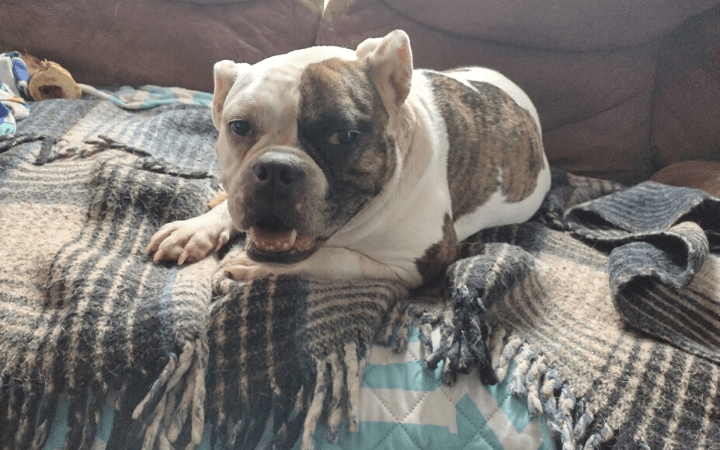
At first Chandler worked on A-6 Intruders, or attack bombers, in his squadron. Over the course of his nearly two decades of service he worked on a variety of aircraft, including fixed wing, EA6Bs, F-14s, S3s, and rotary craft – or helicopters.
To the boy from Brooklyn the work was as sobering in its importance as it was exhilarating.
“It was a lot of fun. It was also a lot of responsibility,” he says. “Being on the deck of an aircraft carrier is one of the best feelings in the world. There’s nothing like it.”
“…I felt worthy of living”
Enlisting in the Navy was a true catalyst for Chandler. He started to see an image of himself beyond that of a wayward, homeless teen from an abusive past.
Hope was on the horizon.
“It was the first time in my life anyone ever told me they were proud of me,” Chandler says. “It was the first time in my life I felt like I mattered. It was the first time in my life I felt worthy of living.”
Still, it would take more for Chandler to internalize these newfound feelings of self worth. Everything in his life to date only served to reinforce a sense that he had nothing to offer.
“I didn’t believe in me. Even looking back now on everything I accomplished in the service, I never really believed I deserved anything good in my life,” he confides.
Chandler refused to surrender to those familiar feelings of self-doubt. Instead, he would parlay that nagging sense of inadequacy into a relentless drive towards excellence in everything he did.
“I was the hardest worker. I was the first one there and last to leave. I did whatever they needed done, no matter how small or menial the task,” Chandler says. “I was trying to prove that I was worthy of people wanting me to be there.”
Loved and loathed
But while the boy was out of Brooklyn, Brooklyn was not out of the boy.
Ghosts of Chandler’s formative years would haunt him. His inability to move beyond intense anger stemming from his rough past only alienated him from others.
“I was still a very angry person,” he shares. “With my history of abuse, the only emotion I could really express was anger. I pushed a lot of people away.”
In many ways Chandler was a paradox: an outstanding and trustworthy yet utterly unlikable colleague.
“People loved working with me, but they couldn’t really stand me as a human being.”
Blue water landings
However, the Navy offered a way for Chandler to navigate a more stable existence.
During his service the boy from Brooklyn got to see the world. He spent time on carriers, cruisers, frigates, and destroyers, among others. While Chandler served with a land-based aviation squadron he was always flying out to ships or deploying with them.
Chandler’s first deployment took him through the North Atlantic and to various ports of call. Eventually the ship had sailed so far out to sea – no land remotely in sight – that it was the only place for aircraft to return.
“The aircraft is either going to come back to the ship or it’s going to crash into the sea,” he explains. “There’s no place else for it to go. There’s no land.”
The Navy veteran recalls one particular aircraft that was experiencing engine problems. He was able to get the engines running again, but only for one flight.
“It was pitch black. It was dark in the ship. You can’t see anything. I was up on a ladder, and the pilot looked at me and said, ‘Am I good?’” he recalls. “I told him he was good to go. Then he asked me, ‘Am I going to come back? Should I take this aircraft?’”
Once again Chandler was astonished that someone sought his advice, no less in a life or death situation. He gave the pilot the all clear.
“Waiting for him to come back was the longest two hours of my life. Even though I knew I had fixed it, the enormity of what he had done – [he] trusted me – sat with me that whole time,” he recalls. “All I could think, over and over, was, ‘What if I messed up?’”
Life and death decisions redux
It would be years later that a similar situation arose, but this time with a helicopter.
Chandler explains that these types of aircraft have primary, secondary, emergency, and backup hydraulics, but that the backup systems should never be needed.
There was a bad part on the emergency hydraulic system of a particular helicopter. Chandler refused to certify the craft for flight until replacement parts came in.
For three long months the aircraft was idled, during which time Chandler was threatened with various reprisals, including the prospect of court martial.
Eventually Chandler was able to service the aircraft. The first time it went out for a nighttime operation both the primary and secondary hydraulics failed. But the emergency system took over and the helicopter returned safely thanks to the installation of parts that Chandler waited on for months.
“Those two situations shaped who I am,” he declares. “I don’t move off my square. If I think I’m right, I stick to my principles.”
Life at the bottom of a bottle
In 2002, after 16 years of service, Chandler left active duty and transferred to the Reserves. It was not his decision entirely.
“It was the alcohol’s choice.”
The Navy veteran received an honorable discharge, but confesses that he was barely holding himself together. His drinking was on the verge of interfering with his work. It was a life or death situation – and not just for himself.

“I saw the end coming. I saw the fact that I was going to get somebody killed. I drank from the time I left the base to the time I got to the base,” he confides. “I always told myself I would never show up to work in a position where I could possibly endanger someone’s life. Then I started doing just that on a daily basis, so I got out. I got out.”
Chandler believes he was a functional alcoholic; he had long struggled with the bottle. Denial blinded him to the depth and breadth of his problem until it was almost too late.
Still, the Navy veteran’s drinking hampered his military career. Twice he turned down opportunities to go to Officer Candidate School because he knew that he would have to stop drinking. He simply was not ready.
“I was afraid to challenge myself,” he confides. “I was a terrible human being.”
It is testament to Chandler’s innate character that some of his fellow sailors held him in high regard professionally, even if they disliked him personally. No less than seven children of fellow service members were named after him.
“The respect they had for me led them to name their kids Chandler,” he says, despite no longer having any friends from his time in service.
Paradox
Chandler’s life went downhill quickly after he left the military. He started smoking crack cocaine, survived several suicide attempts, and entered psychiatric hospitals a number of times as well.
Yet somehow the Navy veteran was always able to hold down a job.
During these turbulent years Chandler worked as a quality engineer for major aircraft manufacturers. He admits that work gave him “moments of clarity,” but not enough to add up to a healthy, productive, or happy existence.
“You think that as long as you can hold a job, everything is fine. The fact that you’re sleeping in your car, that you got paid yesterday but are broke today, that you’re stealing food out of the refrigerator at work,” he says, “none of that means anything as long as you can keep a job.”
Ironically, it was Chandler’s ability to continue working that helped him rationalize his various addictions.
“Being employed allowed me to justify everything I was doing in my personal life,” he says.
Work in progress
Chandler’s ability to speak so candidly about his past is another testament to his character. It is the result of very hard work on his part, intensive psychotherapy, and – as of this writing – over two years of sobriety.
“I’m not a dumb man, but I’ve always been screwed up,” he shares. “It took a lot for me to hit bottom, but I’m doing the work.”
As part of his journey Chandler is working to repair relationships with people in his life. His only surviving immediate family is a sister who – like him – left home at a young age to escape abuse.
Chandler had pushed her away for years while he was drinking and abusing drugs.
“I can say, ‘I love you’ to her now and actually mean it,” he says.
Through his sister Chandler has a niece and nephew. But the Navy veteran never married or had children out of fear of the kind of parent he might have been.
“I never had children of my own,” he says, “because I was afraid I would be like the people that raised me.”
Yet Chandler is nothing like the people whose abuse led him to flee his home before he was even a teenager. He has an innate goodness that had been masked by addiction, a soulfulness that is fighting to be revealed.
“I’m by no means a finished product,” he says. “I don’t think anyone is. There’s no such thing as a finished product, but I am not the person I used to be. I’m happy about that.”
“They didn’t judge me”
In time Chandler accepted a job offer in Rochester, New York, and started abusing drugs again. It was one of a series of bad decisions that ran him afoul of the law.
In late 2018 after Chandler resolved his legal issues a Veterans Administration substance abuse counselor told him about Pets for Patriots and our companion pet adoption program for military veterans.
“I was very honest about my situation and what I was dealing with when I applied,” he shares. “They did their due diligence and contacted my counselors. My counselors thought it would be a good thing for me to get a pet to take care of.”
Chandler had been candid with us in sharing his life’s journey. He was open about his addictions, bouts of homelessness, suicide attempts, and previous legal issues.
If anyone was deserving of a chance to right his ship, it was Chandler.
“They didn’t judge me,” he says. “I would have understood the decision if I got declined, but they didn’t automatically disqualify me because I was an addict. Their focus was on what was going to be best for me and the animal.”
Something about Sterling
Sterling was a two year-old Bulldog mix who had been found in a dumpster. Responding police took her to Rochester Animal Services, a municipal shelter that offers veterans in our program 50% off adoption fees when they rescue eligible dogs and cats.
Sterling was skittish of men so only female staff could handle her – until she met Chandler in the shelter’s meet and greet room.
Despite her fear of men, Sterling went right over to the Navy veteran.
“I saw her and wanted her right away. There was just something about her,” he recalls.
But the deal was not yet done. Another potential adopter was interested in Sterling. However, they never showed up, so in the dawning days of January 2019 Chandler and Sterling were adopted.
Life was looking up for these two kindred souls, but it would not be so for very long.
“…she had nothing”
Looking back, Chandler was not ready. Once again he would succumb to the demons that had plagued him nearly his entire life.
“The truth is, I probably shouldn’t have been allowed to adopt a dog when I did,” he shares. “I was still in the depths when I got her.”
Chandler believed that adopting Sterling would help him focus on the positive developments in his life. It was among the reasons that his counselors recommended that he adopt a companion pet.
In short order they were all to be proven wrong.
“I kept using. I would leave her alone for days,” he confides. “We were being evicted. I had no money. We had no food. All we had was some dog cookies. I was eating those and she had nothing.”
In 2020 Chandler was evicted and sent to a domiciliary in Canandaigua, New York. He recalls it as a “terrible situation,” but one that helped him get clean and sober.
The facility’s property manager took a liking to Chandler and told him about another property that he managed in Newark, New York. Chandler was ready for a change in venue to restart his life yet again.
Chandler is sober and no longer homeless. He and Sterling now live in a two bedroom apartment in Newark. It is a far cry from the streets that he called home for far too long.
Learning to trust
Chandler and Sterling are rebuilding their lives together on much healthier footing than in previous years. The Navy veteran marvels at how far his once abused, abandoned dog has come – while recognizing that the journey is far from over.
Early on, Sterling would have nightmares. She still has food anxiety and resource guarding issues, particularly with bones or treats. The Bulldog mix used to run away if Chandler passed by while she was eating. Now, she pauses momentarily before resuming her meal.
“If you try to pet her when she’s eating, she’ll stop but then go back to her food,” he says. “It’s taken a long time just to get to that point.”
Still, Sterling shows many signs of contentment in her new life with Chandler.
“She snores like a 400-pound fat man,” he jokes, and has figured out ways to manipulate Chandler to her advantage.
One cold day when the pair went for a walk Sterling started to limp so much that Chandler felt compelled to carry her home, despite his bad back. Upon return to their apartment, Sterling ran around without a limp to be seen.
“She is a performer,” he says. “She knows how to play and work me.”
Love thyself
Chandler reflects occasionally on his inability to care properly for Sterling when they were first adopted. Yet those early experiences forced him to learn how to deal with stress differently than he had in the past.
“I had to learn patience with her. I was still going through a lot when I got her, so my tolerance for stress was at an all-time low,” he says. “My first inclination was to raise my voice. I realized I can’t yell at this dog because I’m just making things worse.”
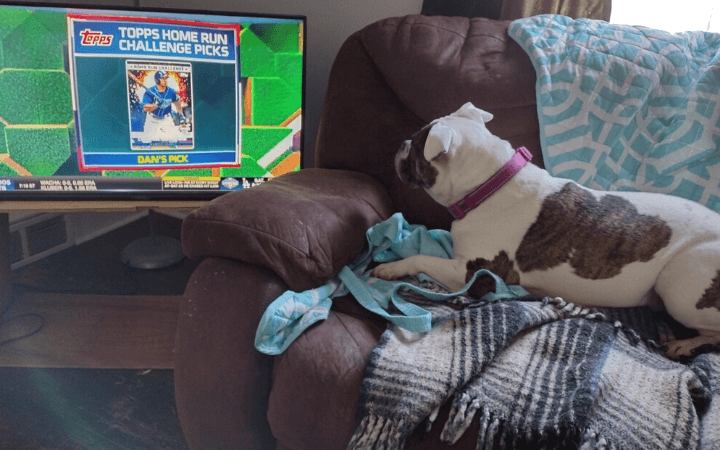
In time Chandler came to believe that he and Sterling are kindred spirits.
Man and beast have both been victims of unspeakable abuse from the earliest age. Both had been discarded, one figuratively and the other literally.
“What I’ve come to find out is that my anxieties are her anxieties. She’s very needy. I’m very needy,” he says. “She has anxiety when I leave her alone, but I contributed to some of that with my past behavior.”
In the few years they have been together Chandler is learning to be more forgiving – of his four-legged charge and of himself, as well. The responsibility of caring for an innocent animal has awakened Chandler’s softer side that had been hidden for so long.
“…one of the best things you can do”
Chandler believes that other veterans would benefit from adopting a companion dog or cat. He has some advice for those who wonder if adoption is right for them.
“It’s probably one of the best things you can do. An animal is going to help you take a look at yourself and how you’re doing with things. If you’re ready to do that, if you’re willing to do that,” he says, “then I would say absolutely adopt an animal.”
Companion animals are living, sentient beings. They are uniquely tuned in to our emotions, expressions, even body language – and react to, or reflect them accordingly.
For Chandler, Sterling has provided a window into his soul.
“Sterling has helped me learn more about myself or helped me reaffirm things I’ve learned about myself than I ever thought would be possible,” he shares. “She helps me deal with the world because the energy I put out into the world affects the people I come in contact with. If I can be decent to her, then I can be decent to people, too. If I’m decent to people, then they’ll be decent back to me. It’s amazing how things work like that.”
Pets for Patriots
Recently Chandler reached out to us about the possibility of surrendering his four-legged family. Sterling’s separation anxiety had worsened to the point where she was scratching her ears til they bled.
“Even though I wasn’t doing harm to her, I felt like I was just by leaving the house.”
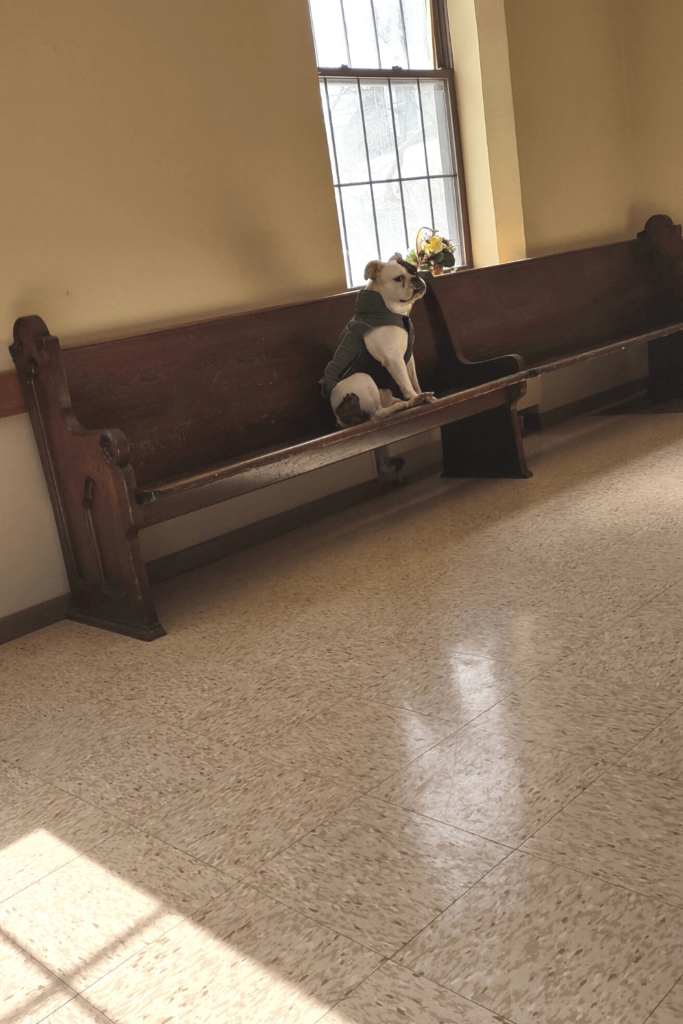
Through our hardship fund we purchased a crate for Sterling and provided expert tips on using a crate to ease Sterling’s stress. At first Chandler thought a crate would be cruel, but he followed our instructions and it helped.
By the Navy veteran’s own admission he would never have heeded our counsel in years past.
“I was still an angry person and unwilling to listen to others,” he says, “I never would have taken that advice and she’d be back in the shelter. She has made me more coachable on ways to take care of her, which makes me more willing to listen to suggestions about how to take care of myself.”
One of the many benefits of our companion pet adoption program is our capacity to follow up with veterans for months – even years – after their adoptions.
We are proud that many veterans we serve are serial adopters, coming back to us after their original pets pass away in order to adopt again. Others reach out when they are experiencing hardships, and some simply like to share ongoing updates.
We are there for them all.
“With Pets for Patriots, I know there’s always someone I can call and say, ‘I’m struggling with my dog. What can I do?’” Chandler says. “Having someone to call is one of the biggest benefits you offer. If I call, someone calls me back. They really want to help.”
Soulmate dog
Chandler and Sterling have formed an indelible bond.
Both suffered untold abuse at an early age. Together they have endured food insecurity, homelessness, and other impacts of Chandler’s prior battles with addiction.
To Chandler, they are more than kindred spirits.
“Your soulmate is the being that is your mirror. There are days they can be going through something and you can relate because you’ve been there. You can help them without even realizing it and vice versa. This dog is my mirror.”
Sterling serves as a reminder of all that Chandler has overcome. Helping her makes him appreciate how far he has traveled in his own recovery.
“For years, I put other people through the same crap she puts me through now,” he confides. “I don’t like being touched physically because of my trauma. When I try to pick her up, it’s like she says, ‘Dude, stop touching me.’ But as soon as we get up on the couch she wants to be right next to me.”
The pair have similar anxieties about food as well, which had been scarce for each in years past.
“I went hungry a lot as a kid, so I use food as a coping mechanism,” Chandler shares. “Sterling does the same thing. She’ll eat anything you put in front of her because she’s afraid she might not get any more.”
Loving Sterling has helped Chandler love himself as well. He has finally internalized those fleeting feelings he first had while serving in the Navy that his life is worth living. He now knows that it is.
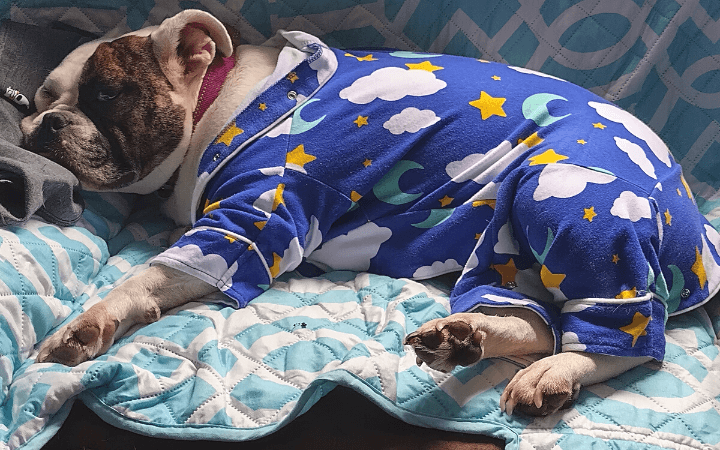
Chandler is reminded every day that his four-legged charge is playing a big role in his newfound feelings of self-worth. He even fancies their names have a regal ring.
“Chandler and Sterling,” he says, “we sound like royalty.”
Box of shoes
The Navy veteran remains a work in progress. He recognizes that his relationships with people are very different now. There is compassion. Opportunities for kindness. Forgiveness where it was not possible before.
“I used to walk around waiting for the other shoe to drop. But I was the one carrying the box of shoes. I would throw the shoes in the air and say, ‘See, I told you the shoe was going to drop,'” he says. “I no longer walk around with a box of shoes.”
Chandler’s previous behavior had him banned at the Veterans Administration; he is no longer ‘red-flagged.’ Situations that would have once caused him undue anxiety – like the dentist – are more manageable now. He is a far more pleasant human being than he had been for so many years.
“Now, people are glad to see me arrive instead of being glad I’m gone.”
Even neighbors who once shunned him are now happy to see him.
“In the past, women would clutch their purse and walk away if they saw me coming,” he confides.
Now those very same people stop to pet Sterling and make conversation.
Anchors aweigh
Recently Chandler reflected on the relationship our team had built with him over the years. He realizes that he is a different person, a better and more confident one.
A person who we are proud to have as part of our Pets for Patriots family, through thick and thin.
“I no longer have to be angry all the time, no longer worry about shelter or food or finances to a certain extent. I no longer have my days consumed with chaos, and I am trying to embrace this version of me and find things to enjoy to fill that void,” he explains, “much as she is learning how to not be scared or hungry or live in fear.”
The Navy veteran grows more smitten every day with his soulmate dog. He sees a touch of humor in how similar their paths have been, and the unlikely ways they crossed that led to their adoption.
A “better human”
These days Chandler no longer works, having been awarded a 100 percent disability rating by the Veterans Administration. For so many years it was work that allowed Chandler to mask his addictions. Now he no longer has to hide.
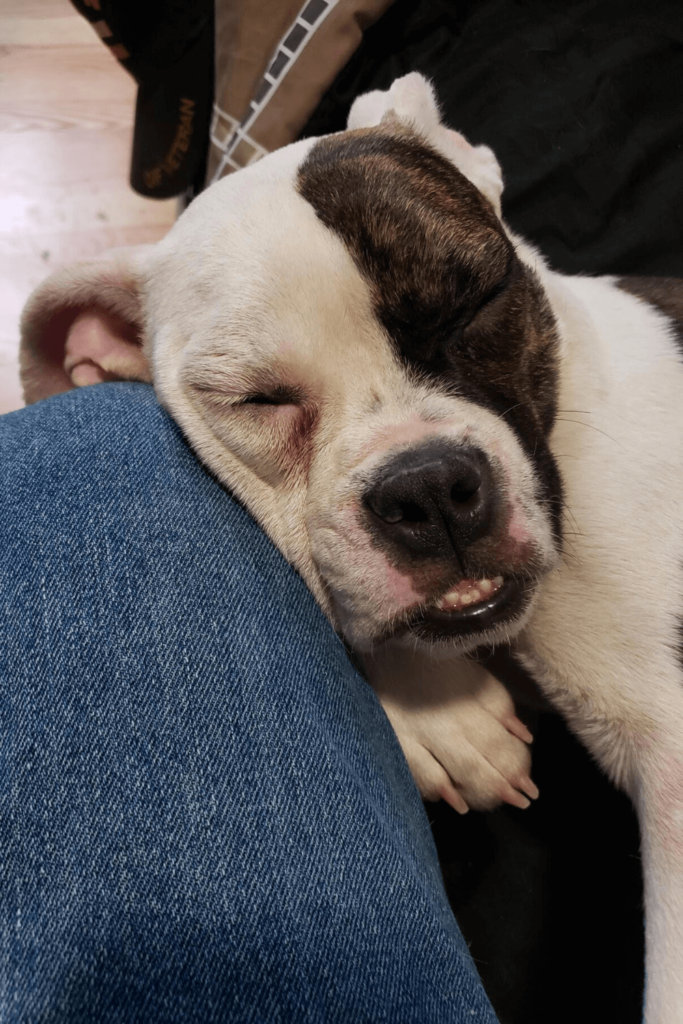
Working used to be a source of pride for Chandler, as well. It was his service in the Navy that first exposed him to feelings of self-worth – however fleeting. He has learned that there are other ways to make his mark.
“It doesn’t mean I can’t still have some impact and leave this world better than I found it,” he says, “even if that just means being better for Sterling than I was when I first adopted her.”
Chandler sees his soulmate dog as the innocent that she is; she never asked to be abused or abandoned. She became homeless and anxiety-ridden through no fault of her own. And she became part of Chandler’s family at a time when, in retrospect, he was not prepared to have one.
In the waning days of 2018 in an upstate New York shelter Sterling approached this once hardscrabble man, despite her fear of men. Perhaps she sensed his potential, if only they could navigate through some early, stormy seas.
The Navy veteran accepted the challenge. Learning to love and care for Sterling meant learning to love and accept himself.
“She didn’t ask for me to adopt her. I chose her. So it’s up to me to be the best version of myself that I can be for her,” Chandler says. “Sterling has helped me become a better human.”


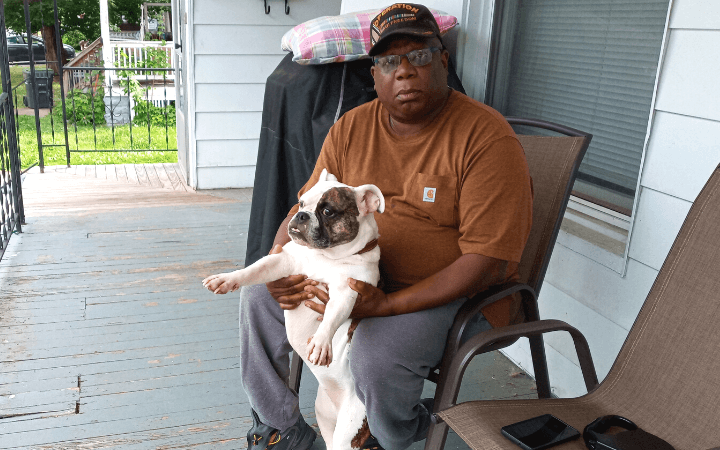


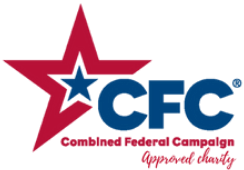





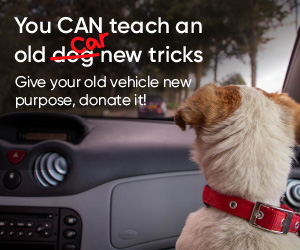
Speechless in expressing the impression this share has given me this morning. You have come out to the other end of the tunnel with streamers in the wind. Sterling and you have saved each other. What a bond! Thank you to Pets for Patriots for their continued support.
Thank you for your service.
May your journey continue to grow strong in spirit and good will.
Thank you for your service and for sharing your story with all of us. How beautiful that you and Sterling found each other. You are both very special and meant to be together.
I’m speechless. This is an amazing story. I think back to the many Sailors I served with and some who were a challenge. We didn’t know their history. They could have been a :”Chandler”. What a story of perseverance. Thank goodness there are organizations like Pets for Patriots. Don’t stop providing your valuable service.
This is by far the saddest and eventually happiest stories I’ve ever read on this site. I had tears forming in my eyes for Chandler and Sterling. God will take care of you and provide what you need, man and dog. I cannot begin to express how touched I was as I read the account of their journeys. Thank you and may God bless and keep you both!
Loved this story and want to send blessings to both Chandler and Sterling!!!
This heartwarming story brought tears to my eyes for thinking about all of the hardships for both Chandler and Sterling. And I was moved when reading about Chandler’s experience as an aviation mechanic which lead him to see that the Navy valued his intelligence and put him in an impressive job. Thank goodness both man and dog have settled into a happy life together!
This story shows the potential in all of us to enhance our lives, and our pets lives, by developing a true bond. As with all relationships, they require patience, effort and they evolve over time. Thanks to Pets for Patriots for supporting Chandler and Sterling when times were tough.. Chandler, way to hang tough and keep moving forward in spite of the occasional missteps. My teacher wife will love it when I tell her about the use of grit in your story, she speaks to her students about developing that essential and powerful trait.